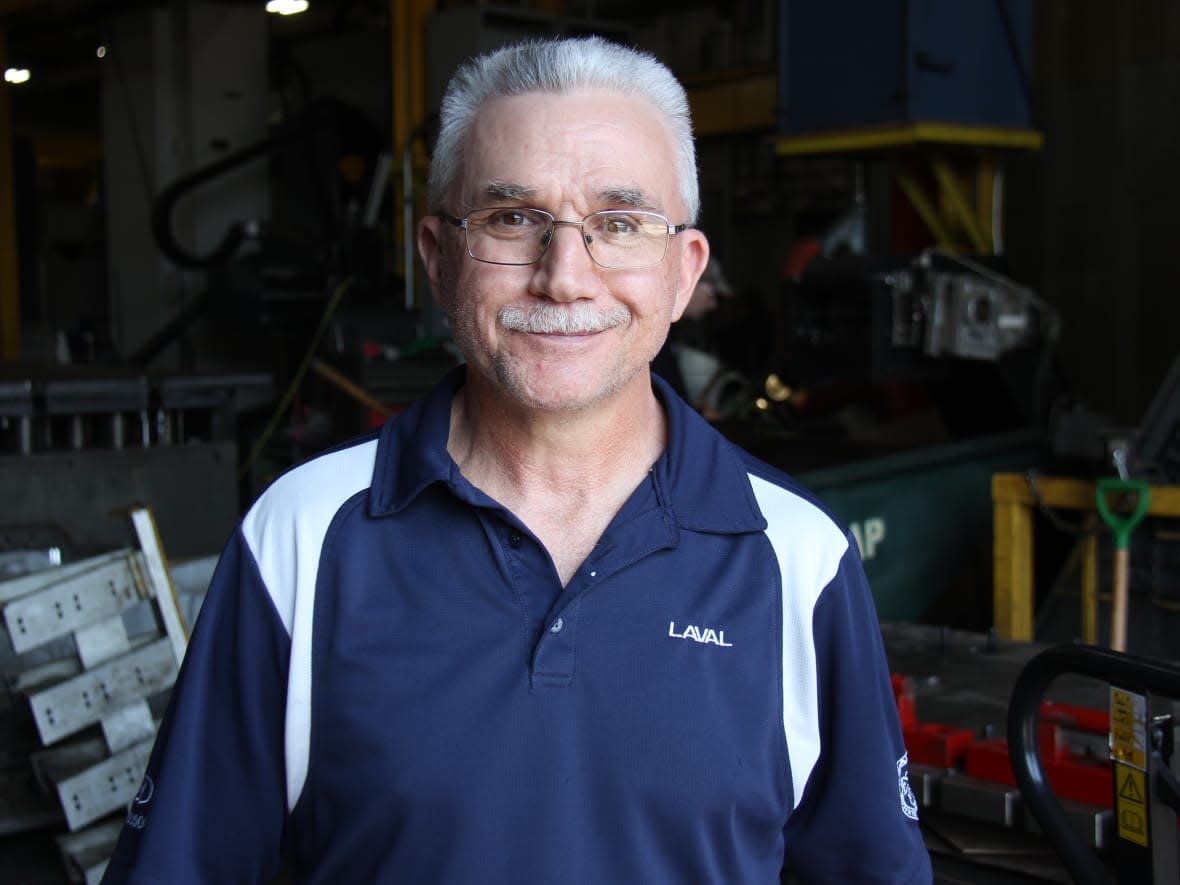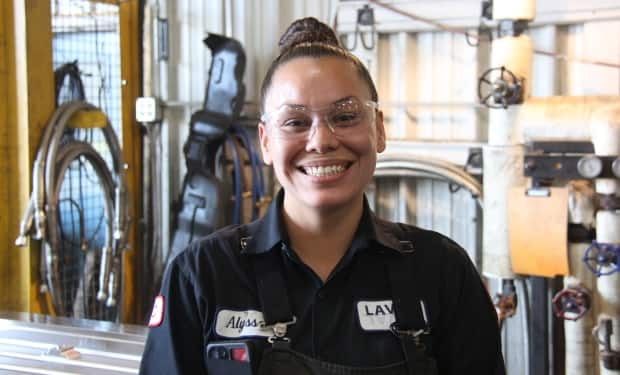As skilled trade workers gear up for retirement, employers worry about filling the gap

As plant manager Mike Jenner walks through the busy shop floor of Laval Tool & Mould, in Tecumseh, Ont., he's very aware of one key truth: in order for operations to stay afloat in the years to come, the industry needs more workers to join the ranks — especially as workers like him are planning on retiring very soon.
"The average age of tool makers in this city is getting older like myself," said Jenner, who has worked in the field for 40 years.
"We need to find some of these young hands and minds to replace us. And it's getting difficult."
Jenner explained that at Laval, at least one third of staff are looking at retirement in the next five years.
"Those are large numbers to fill and [that] can be a real brain drain on your company when those days come. So we've got to get busy," Jenner said.
Failing to adapt
He said the company is currently looking for mould makers, designers and program managers to fill about five available positions.
Finding talent and keeping talent has become a tall order in recent years, he said.
The workforce has changed, Jenner said, and he feels that management has "missed the boat" in some ways to attract young people to the fields.
He said that young workers are more protective of their time and not as interested in long hours.
"We failed to react to that. We failed to adapt," he said. "We've got to meet them halfway."
He said the company has added more shifts to allow for more flexibility for employees.
"As an employer, you have to be flexible to work with them as far as, you know, if they need to leave or they need the weekend off. We all have lives, we're all busy and by meeting them halfway I seem to find that you develop a relationship, where they'll help you when you help them."
He stressed that it's a lucrative business with lots of opportunities for making a good money.
According to a document put together by Workforce WindsorEssex, a non-profit focused on employment initiatives, journey people across a variety of skilled trades can make hourly wages that could range from $20 per hour to more than $30 per hour.
A skilled trades expert told CBC News that journey people who are unionized can make 30 to 35 per cent more than that.
The other thing that needs to happen within the industry, Jenner believes, is that once talent is identified, employers have to help move them along with raises as quickly as possible.
"They're not patient," he said. "You got to keep them interested."
Construction workers also needed
Tool and Die isn't the only field with a worker shortage. This is a province-wide issue with one in three journey persons over the age of 55, according to Minister of Labour, Immigration, Training and Skill Development Monte McNaughton.

"We've got a lot of work to do. I'm not blind to the idea," he said.
According to data from Statistics Canada, for the Windsor-Essex, Chatham-Kent and Sarnia region, as of the final quarter of 2022, there were 2,845 job vacancies in the trades category, which went up from 2,155 in the same quarter the previous year.
McNaughton stresses that between hefty investments in training centres, working with the federal government to bring in more immigrants to work in the skilled trades and reaching students at a young age to get them interested in these careers, the province is "making headway."
He said apprenticeship registrations are up 25 per cent across the province over the past year.
McNaughton also pointed to provincial efforts to help people who have criminal records — many of whom struggle to find work — get recruited into the skilled trades.
Further to that, the province is offering up incentives to employers of up to $17,000 for taking on an apprentice, he explained. The province is also offering a $1,000 tools grant to every apprentice who registers through Skilled Trades Ontario in order to purchase tools as they enter their desired fields.
He also pointed out that the province needs 100,000 construction workers to build homes across the province over the next 10 years.
Contractor Mark McLean owns Marxman Construction, and says he's also struggling to find and retain workers on his team.

"I'm booked for one to two years in advance and trying to keep up and find people to help me out. Getting these jobs done is near impossible," he said, adding that some people don't want to work five days a week, while others don't show up at all when they promise they will.
"It's hard work and you get your hands dirty and I think that shies lots of people away," he said, adding that incentives, like better pay, might help draw more people into the industry. Anecdotally, McLean says he knows of many contractors gearing up for retirement.
"I just know a lot of old timers that are getting out of it and I don't see a lot of people ready to fill in the gaps and take their place."
That being said, McLean does benefit from the high demand of work being shared between a small pool of workers.
"There's a ton of work out there," he said.
'Just give it a shot'
There are some programs doing great work to attract people into the trades like the Ontario Youth Apprenticeship Program (OYAP) and the Women's Enterprise Skills Training of Windsor (WEST), Jenner pointed out.
Alyssa Sickles joined the team at Laval after going through the WEST millwright program.

"It's been pretty great," she said. "Especially that all the guys here made me feel welcome and they all had a part in teaching me everything I know so far."
Her apprenticeship officially starts in September.
She encourages others to consider the field.
"Just give it a shot. There's nothing you could lose by just trying it and seeing if you like it, or even a route that leads to another trade," she said.
'Glory days are ahead'
Jenner is hoping to do his part to put the company in a good position for the future, before he retires.
He said at this point Laval isn't offering incentives to workers to delay their retirements — but said it might be considered down the road.
"It is nerve wracking because you want to leave it hopefully in as good or better place than when I started and there's lots of work to do," he said.
Especially with the auto industry moving toward the electrification of vehicles, he believes his trade is going to thrive again.
"The glory days are ahead of it, not behind us."


